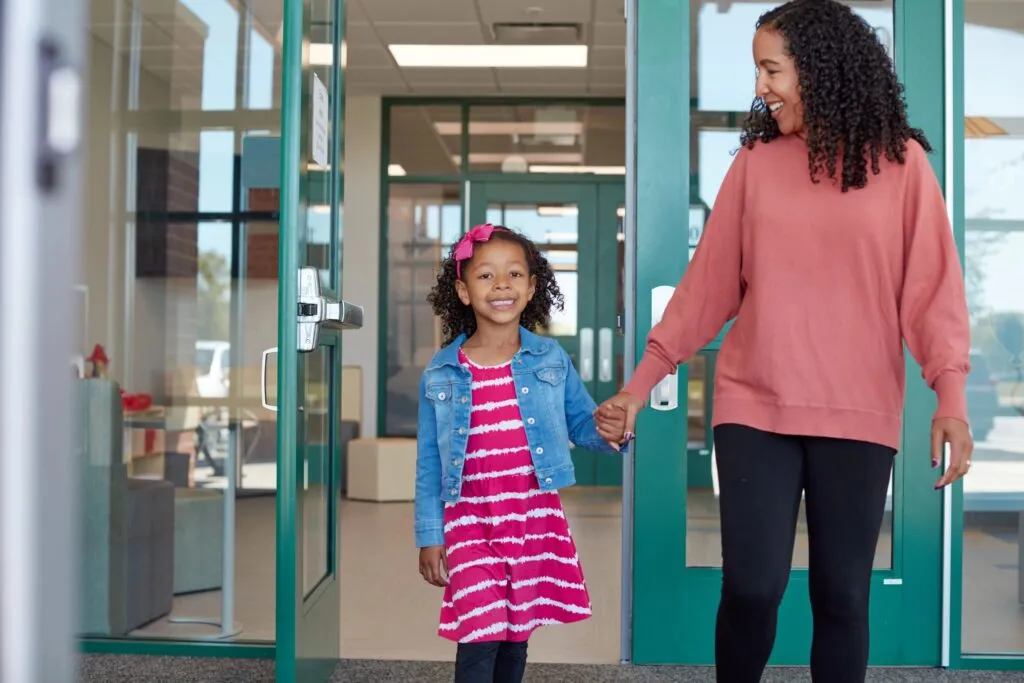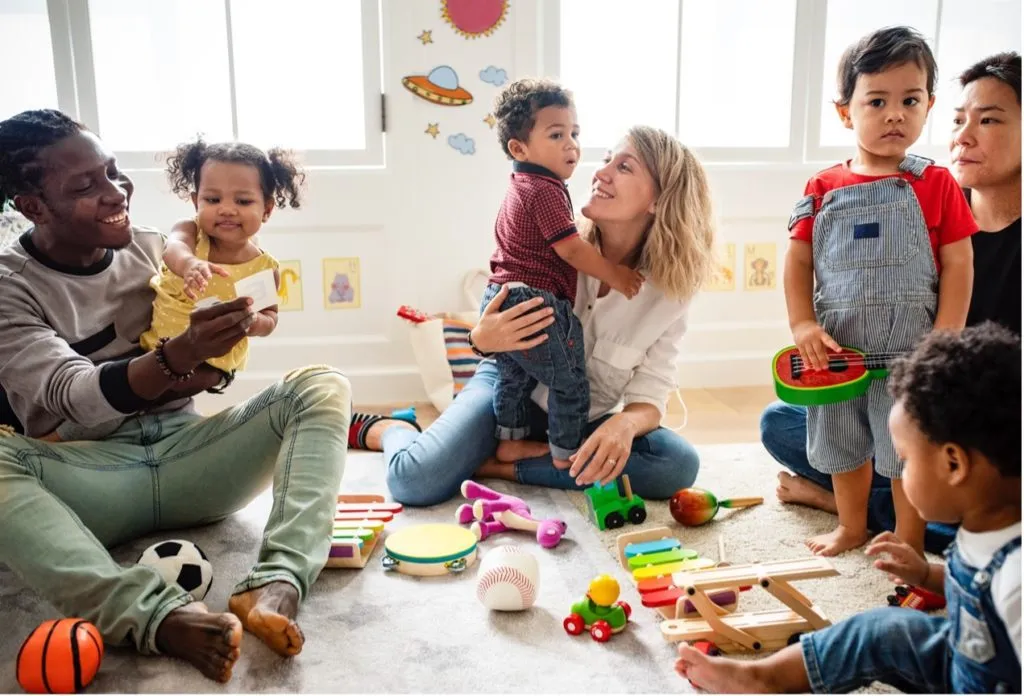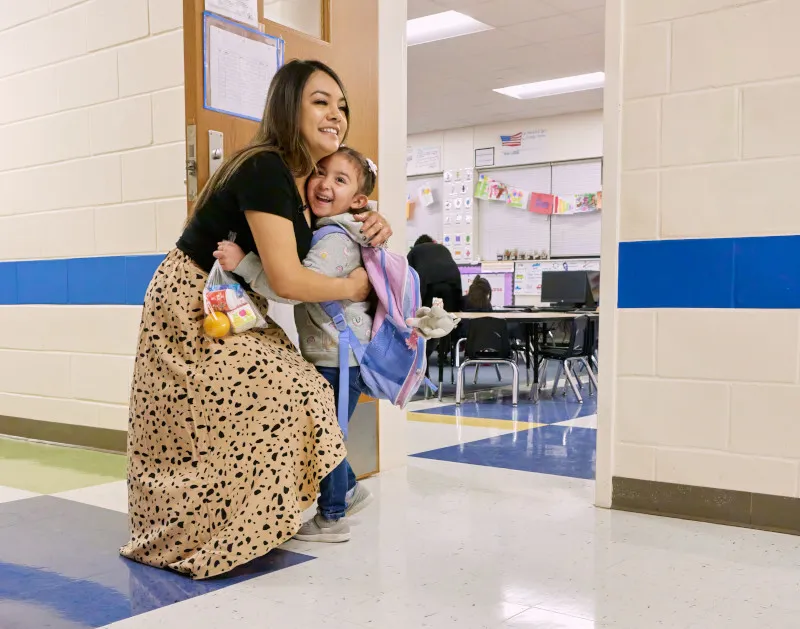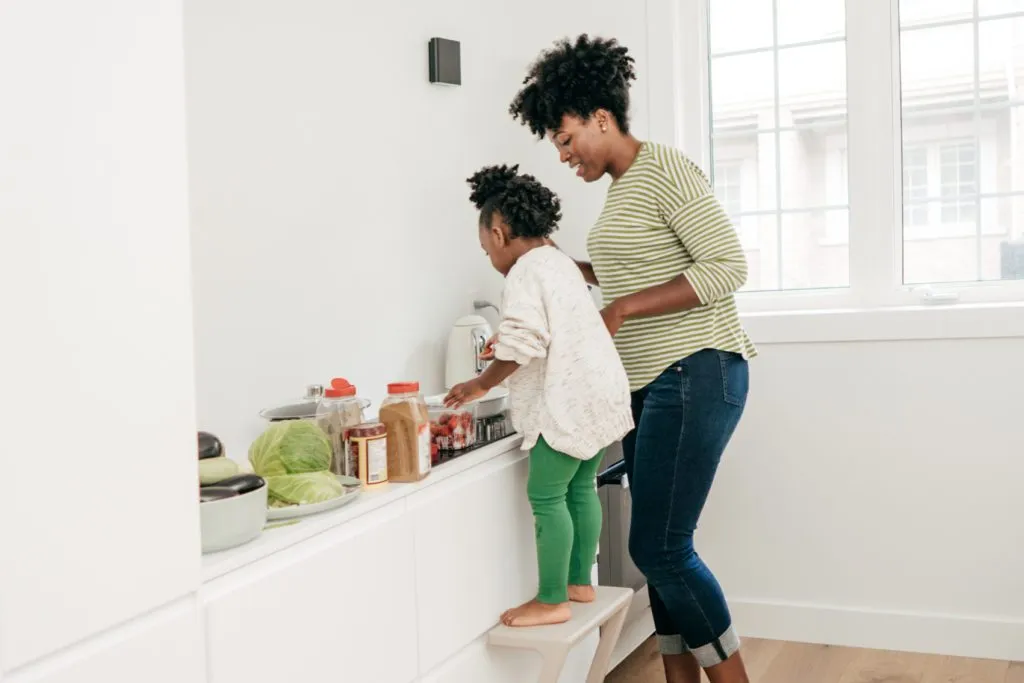Why It Matters: Teaming Up With Families

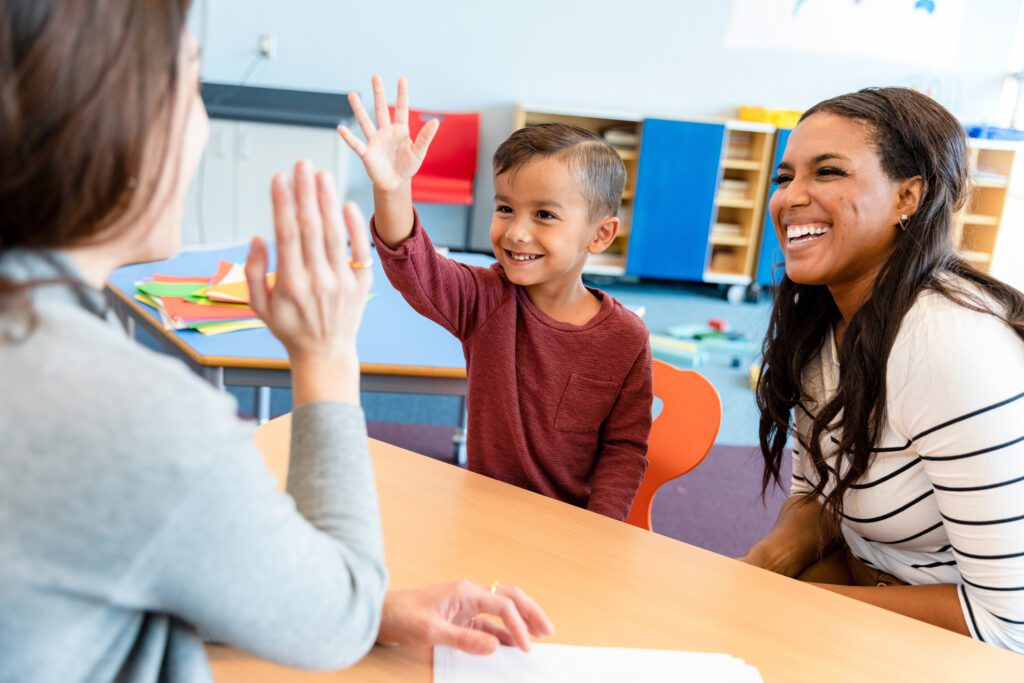
I am the mother of two amazing children. At the beginning of this school year, my younger child Beau’s preschool teacher met with me and asked about our family. What was important to us? What did we value? What was our family culture and traditions? The most profound question she asked was this: “What are your hopes and dreams for Beau?” This conversation, and this question in particular, showed me she cared—not only about my child, but about our family.
I immediately felt invested, included, and connected—to Beau’s teacher, to his class, and to his experience in this environment where he was about to spend so many of his waking hours.
Families as Teachers
Just a few weeks before my son started the school year, I myself was a student, as I sat in the audience of a leadership summit. The speaker shared strategies she used to engage families in her program. She used a phrase that has stuck with me: “Families are children’s first and forever teachers.”
I’m an educator. I’m a parent. I am also someone’s child. I considered her statement in terms of my own children and knew that it rang true. Then I considered my relationship with my parents, and, again, I know it’s true. Even as an adult, I find that my parents are still my teachers. They know me best and continue to help guide my path forward through life.
A Teacher’s Time With Children Is Brief
We hear the phrase “family engagement” quite often in education. I have come to believe that just as important as knowing strategies for engaging with families is understanding why we do it. Why does it matter, not just in the short-term (such as the importance of keeping families informed of their children’s progress or making sure they know what their children are learning about at school) but also in the long-term?
There’s plenty of evidence that children with engaged families tend to enjoy higher levels of school readiness and attend school more regularly, have better social skills, earn higher grades, enroll in post-secondary programs more often—the list of benefits goes on. Years of research show that engaging families goes far beyond what’s happening in your classroom today: it’s about preparing children for success far beyond the time they spend with us.
As teachers, our time with children is brief. Even when individual days can feel long, we always seem to arrive at the end of a school year and wonder where the time went.
Building an Ongoing Network of Support
As teachers, we team up with families to build meaningful partnerships. We want families to feel capable and empowered while also knowing that we are all working toward the same goals: success for their children. Whatever their hopes and dreams are for their children, they all boil down to wanting their children to be successful—at school; in their personal relationships; and as happy, healthy, contributing members of society.
Here are three keys to building meaningful partnerships with families that let them know that, like my son Beau, their children are in good hands for this important, yet ultimately short, time you have with them.
Help Families Feel Invested
A family feels invested when they know their child’s teacher cares about their child and their family. When teachers are intentional in getting to know families, they understand that it’s more than just a “Welcome to Preschool!” letter with an “All About Your Child” survey. Families often have great insights to offer about what their children know and can do as well as what they are interested in learning more about and how they feel about coming to school.
Just as there are ways that all children are the same and all children are different, there are ways that all families are the same and all families are different. How are you getting to know each family and letting them know that you appreciate them? How are you letting them know that you care about their hopes and dreams for their child?
Help Families Feel Included
Everything you come to learn about children’s families will help you include them in your classroom. Families who feel included in your classroom, involved in their children’s learning, and respected by the adults at your school are more likely to return and become increasingly involved in your program. My colleague Ryan Woods recently offered a lot of ideas for inviting families to become meaningfully involved, which you can read here.
One example is to consider your current study or an upcoming one and ask yourself, “How might children’s family members help bring this learning to life in my classroom?” and “What free or low-cost materials might they be able to donate to enhance the children’s hands-on experiences during an investigation?” Even families who can’t visit school in person during the school day can feel included when they are offered opportunities to do so.
Help Families Feel Connected
All of this leads to helping families feel connected to their children’s life at school.
When we share information with families and invite them into the classroom, we gain a better understanding of children, develop shared expectations for the children’s continued growth, and help the children know that their two most important worlds—home and school—have teamed up to create a network of support for them, creating a positive impact will last far longer than just the time they are in your classroom.

Strengthen the Connections Between School and Home
Strong communication is the foundation for all home-to-school relationships. Build meaningful partnerships with families to improve child outcomes and overcome barriers so that every child in your program benefits.
